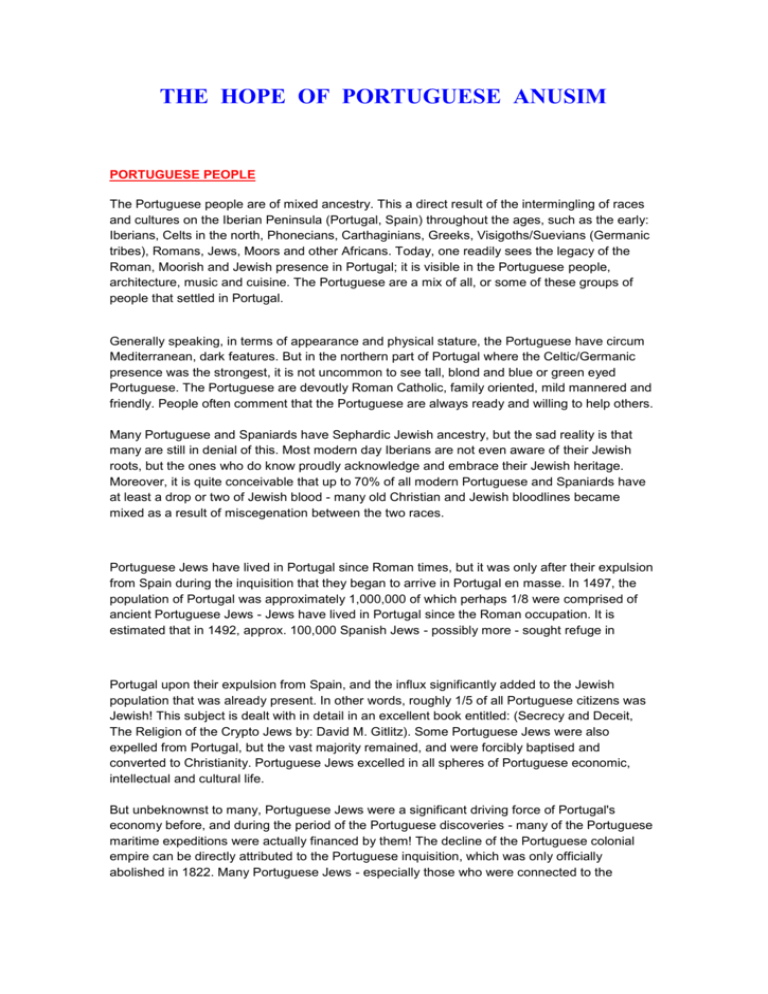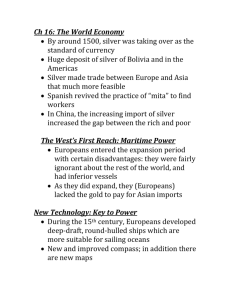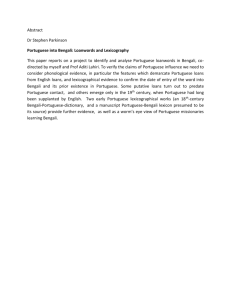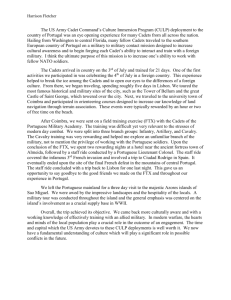portuguese people - Center for Latino
advertisement

THE HOPE OF PORTUGUESE ANUSIM PORTUGUESE PEOPLE The Portuguese people are of mixed ancestry. This a direct result of the intermingling of races and cultures on the Iberian Peninsula (Portugal, Spain) throughout the ages, such as the early: Iberians, Celts in the north, Phonecians, Carthaginians, Greeks, Visigoths/Suevians (Germanic tribes), Romans, Jews, Moors and other Africans. Today, one readily sees the legacy of the Roman, Moorish and Jewish presence in Portugal; it is visible in the Portuguese people, architecture, music and cuisine. The Portuguese are a mix of all, or some of these groups of people that settled in Portugal. Generally speaking, in terms of appearance and physical stature, the Portuguese have circum Mediterranean, dark features. But in the northern part of Portugal where the Celtic/Germanic presence was the strongest, it is not uncommon to see tall, blond and blue or green eyed Portuguese. The Portuguese are devoutly Roman Catholic, family oriented, mild mannered and friendly. People often comment that the Portuguese are always ready and willing to help others. Many Portuguese and Spaniards have Sephardic Jewish ancestry, but the sad reality is that many are still in denial of this. Most modern day Iberians are not even aware of their Jewish roots, but the ones who do know proudly acknowledge and embrace their Jewish heritage. Moreover, it is quite conceivable that up to 70% of all modern Portuguese and Spaniards have at least a drop or two of Jewish blood - many old Christian and Jewish bloodlines became mixed as a result of miscegenation between the two races. Portuguese Jews have lived in Portugal since Roman times, but it was only after their expulsion from Spain during the inquisition that they began to arrive in Portugal en masse. In 1497, the population of Portugal was approximately 1,000,000 of which perhaps 1/8 were comprised of ancient Portuguese Jews - Jews have lived in Portugal since the Roman occupation. It is estimated that in 1492, approx. 100,000 Spanish Jews - possibly more - sought refuge in Portugal upon their expulsion from Spain, and the influx significantly added to the Jewish population that was already present. In other words, roughly 1/5 of all Portuguese citizens was Jewish! This subject is dealt with in detail in an excellent book entitled: (Secrecy and Deceit, The Religion of the Crypto Jews by: David M. Gitlitz). Some Portuguese Jews were also expelled from Portugal, but the vast majority remained, and were forcibly baptised and converted to Christianity. Portuguese Jews excelled in all spheres of Portuguese economic, intellectual and cultural life. But unbeknownst to many, Portuguese Jews were a significant driving force of Portugal's economy before, and during the period of the Portuguese discoveries - many of the Portuguese maritime expeditions were actually financed by them! The decline of the Portuguese colonial empire can be directly attributed to the Portuguese inquisition, which was only officially abolished in 1822. Many Portuguese Jews - especially those who were connected to the Portuguese nobility - were granted Portuguese family coat of arms (see: coat of arms section of the Jewish Encyclopaedia.). And as a clever way of protecting themselves against Christian anti-semitism, they adopted many common Portuguese surnames such as: Rodrigues, Cardoso, Nunes, Carvalho, Teixeira, Henriques, Costa, Mendes, Alvares, Amaral, Dias, Furtado, Almeida, Ribeiro, Silveira, Medeiros, Ferreira, Gomes, Lopes, Franco, Castro, Machado, Medina, Garcia, Fernandes and Pacheco. During the forced conversions, for obvious practical reasons, many Portuguese Jews also adopted very Catholic sounding surnames such as: dos Santos, Cruz, de Jesus, Conceição, dos Anjos, etc. It should be noted however, that the possession of a Sephardic surname (adopted surnames of Jews from Spain & Portugal) does not in and of itself prove Jewish ancestry. Conversely, one can have Jewish ancestry and not necessarily possess a typical Sephardic surname. However, it is believed that certain Portuguese, nature derived surnames are actually of Jewish origin - not Christian. Historically, Portuguese Jews typically chose names for themselves that derived from nature, i.e., names of: trees, vegetables, fruits, plants and animals. Portuguese Jewish physicians, scientists and merchants were already in possession of these kinds of surnames, which are confirmed as having existed much earlier than the forced conversions which began in 1496. Examples of nature derived surnames believed to have been introduced to Portugal by the ancient Portuguese Jews are: Pereira (pear tree), Oliveira (olive tree), Pimentel (small pepper, or a field of peppers), Figueira (fig tree), Silva (berry bush), Leite (milk) Lima (lime), Cordeiro (lamb), Pinto (chick), Leão (lion) and Pinheiro (pine tree). It can be said with a high degree of certainty that virtually all persons with nature derived surnames invariably had ancestors somewhere in their family tree that were New Christians (or) Conversos, the terms used to identify Jews who were forcibly baptised/converted. Over time, the Conversos lost much of their Jewish heritage, but in some families, some Crypto Jewish rituals and traditions survived and were passed down from generation to generation. The descendants/children of Conversos are generally referred to in Hebrew as 'B'nai Anusim'. Large numbers of expelled Portuguese Jews re-settled in Holland, England, Italy, Turkey, Morocco, Gibraltar and in all of the Portuguese colonies especially Brazil, the CapeVerde Islands, the Azores and Mozambique. It is believed that the Azores were 30% Jewish during the early stages of settlement. The Cape Verde islands of Santo Antonio and Brava to this day still bear vestiges of Judaism. Brazil by far, received the greatest number of Portuguese Jews, who were responsible in large measure for developing the early economic infrastructure of Portuguese colonial Brazil. It should also be noted, that the early whaling and import/export economies of New England U.S.A., were developed primarily by the Portuguese Jews. They had escaped the inquisitorial pressures of Portuguese colonial Brazil and subsequently re-settled in Guyana, Jamaica, Curação and other islands in the Carribean before eventually making their way north to parts of New England. Nowadays, vestiges of Portugal's Jewish past can still be seen in the remote towns and villages of Portugal. Several Crypto-Jewish communities still exist in the Trás-osMontes region and there are many very old synagogues in Portugal as well. For over 400 years, Crypto-Jews had to rely on extreme secrecy and deception to avoid the inquisitors. However, despite the great obstacles and adversities of the Portuguese inquisition, the Crypto-Jews of Portugal persevered and secretly kept their religion alive. In the town of Belmonte, among others in Portugal for example, efforts are being made to re-approximate the Crypto Jewish religion with the orthodoxy of Israel. Bruno Amaral – Elizabeth Amaral – Joao Amaral (2004)








